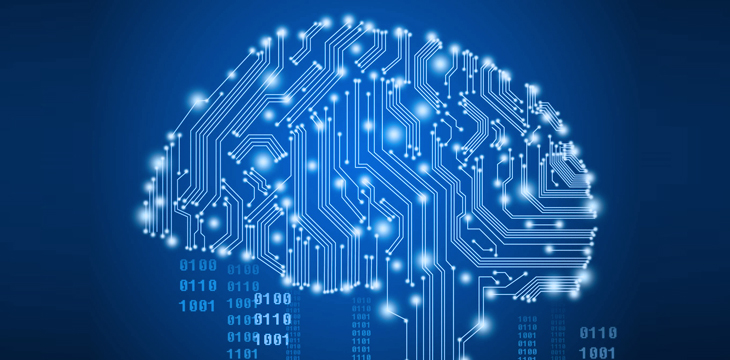|
Getting your Trinity Audio player ready...
|
Blockchain technology and artificial intelligence have been widely regarded as the two technology fields that will shape the future. And now, one company is bringing the two together to fight the ever-growing challenge of counterfeit goods. German pharmaceutical and life sciences giant, Merck Group, acquired a new patent which will allow the company to employ blockchain tech to protect the integrity of supply chains globally.
Based in Darmstadt, Germany, Merck Group is the oldest operating pharmaceutical and chemicals company in the world. It began operations in 1668 and has grown over the years to become the world’s fifth largest pharmaceutical company.
Issued by the United States Patent and Trademark Office, the new patent outlines the creation of crypto objects. The company defines these as “a novel security procedure linking Artificial Intelligence (AI) and blockchain technology.”
The patent will allow Merck to use machine learning and artificial intelligence to give objects a unique identity on a blockchain. The identity will be given through the use of fingerprints or identifiers, which can range from DNA patterns to chemical signatures and image patterns. This will be the foundation of a supply chain that relies on mass spectrometry and barcode scanners to authenticate products.
The Widespread Ripple Effect
Merck’s chief strategist, Isabel De Paoli emphasized the great effect that the technology will have on multiple businesses. While making the announcement via a blog post on Merck’s website, she stated:
“This new patent continues to build on the momentum gained through earlier patents. Our heritage in the security materials business makes our company an expert in the sector. Merck is now spearheading the development of blockchain technologies that focus on a combination of physical objects and digital security. This will have implications for all industries that depend on reliable product authenticity, such as safety-critical supply chains in the pharma and food sector.”
While blockchain technology can ascertain the authenticity of products, the lack of data greatly impedes it. For products to exist in a digital format, they require input and this process determines the authenticity of the data contained on a blockchain. With artificial intelligence, authenticity becomes guaranteed.
This is the third blockchain patent by Merck Group. They included technology on the integration of physical materials into a digital format and the enhancement of the security functions safeguarding this data.
Blockchain technology has grown in prominence in the pharmaceutical industry as stakeholders strive to kick out counterfeiting. The counterfeiting is quite profitable, with one research stating that every $1,000 invested in counterfeiting drugs brings in over $500,000. However, these counterfeits have a far-reaching cost on the consumers, with Reuters putting the annual economic impact at over $200 billion.
In order for artificial intelligence (AI) to work right within the law and thrive in the face of growing challenges, it needs to integrate an enterprise blockchain system that ensures data input quality and ownership—allowing it to keep data safe while also guaranteeing the immutability of data. Check out CoinGeek’s coverage on this emerging tech to learn more why Enterprise blockchain will be the backbone of AI.

 02-14-2026
02-14-2026 




